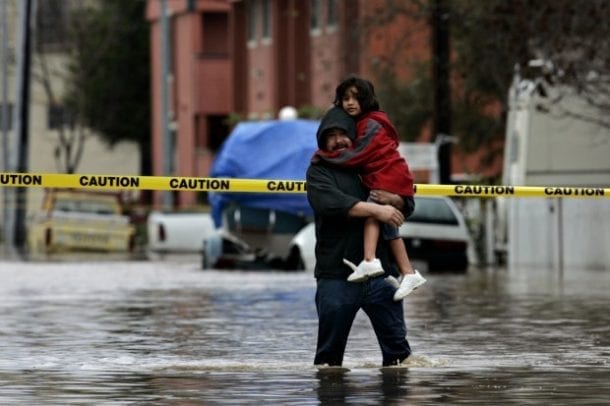Hurricane Season Peaks: Presco Wants You to be Prepared
 September 10th, 2018 is fast approaching and with that comes the peak of the Atlantic Hurricane Season. With sea surface temperatures reaching 80 degrees Fahrenheit, it is only a matter of time before the Atlantic can expect to get some stormy activity. The National Oceanic and Atmospheric Administration (NOAA) predicts that the Atlantic could see as many as 10-16 names storms; 4 of which could potentially become major hurricanes. How prepared are you? Do you have bottles of water and ready-to-eat foods stored? How about plans for your pets or familiarity with shelters in your area? If you have answered ” No” to any of these questions, then you could be neglecting you and your family’s safety. Don’t be scared, BE PREPARED!
PREPARE NOW:
September 10th, 2018 is fast approaching and with that comes the peak of the Atlantic Hurricane Season. With sea surface temperatures reaching 80 degrees Fahrenheit, it is only a matter of time before the Atlantic can expect to get some stormy activity. The National Oceanic and Atmospheric Administration (NOAA) predicts that the Atlantic could see as many as 10-16 names storms; 4 of which could potentially become major hurricanes. How prepared are you? Do you have bottles of water and ready-to-eat foods stored? How about plans for your pets or familiarity with shelters in your area? If you have answered ” No” to any of these questions, then you could be neglecting you and your family’s safety. Don’t be scared, BE PREPARED!
PREPARE NOW:
- Have plenty of readily available water and ready-to-eat foods handy for at least 3 days.
- Familiarize yourself with evacuation zones, evacuation routes and most importantly have a list of shelters in your area and their addresses printed or written out in case you will need to seek shelter and electricity is out. Visit: https://www.redcross.org/get-help/disaster-relief-and-recovery-services/find-an-open-shelter.htmlto find a list of shelters near you.
- Install hurricane shutters/board up windows, declutter drains and gutters to protect your property.
- Have a list of medications prepared and all your pharmacy, doctor, and insurance information handy in case of a medical emergency.
- Get those prescriptions filled NOW
- Turn on your tv or radio for weather updates.
- Go fill up your gas tanks.
- Bring in all loose or lightweight outdoor furniture
- Trim or remove trees close enough to fall on your home
- PETS!!! New laws allow provisions for evacuation of animals.
- Pet-Friendly travel offers a detailed list of pet lodging should you be unable to accommodate your pets needs during the disaster. Visit: http://petfriendlytravel.com/locations
- Close storm shutters and stay away from windows
- Turn your refrigerator or freezer to the coldest setting and open only when necessary. If you lose power, food will last longer. Keep a thermometer in the refrigerator to be able to check the food temperature when the power is restored
- Charge your cell phone
- Evacuate if told to do so
- If trapped in a flooded building, make your way to the highest floor
- Do not bring your generator inside!
- Do not walk, swim or drive through flood waters. Just six inches of fast-moving water can knock you down, and one foot could sweep your vehicle away
- Listen to authorities for information and special instructions
- Do not touch electrical equipment if it is wet or if you are standing in water
- Save phone calls for emergencies. Phone systems are often down or busy after a disaster. Use text messages or social media to communicate with family and friends
- Document any property damage with photographs. Contact your insurance company for assistance.

